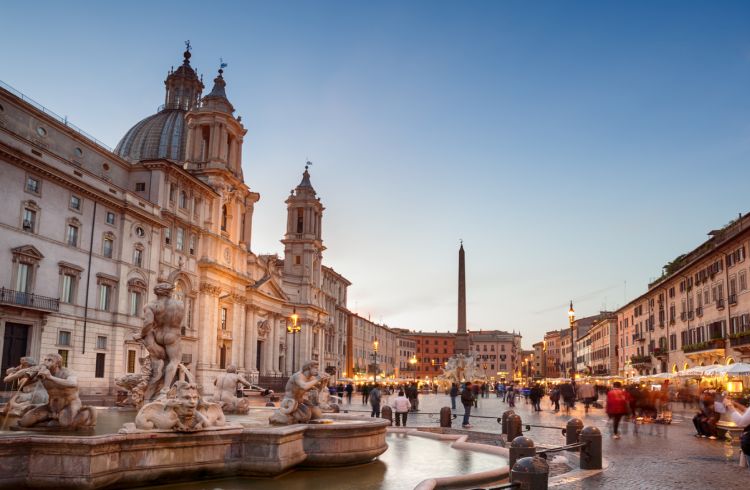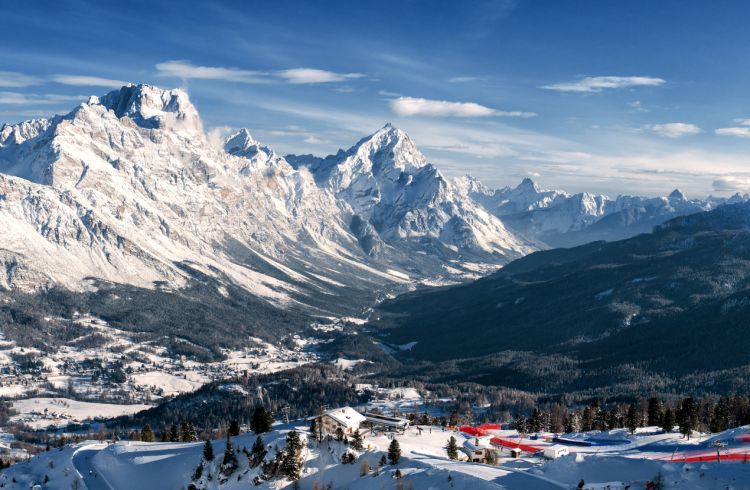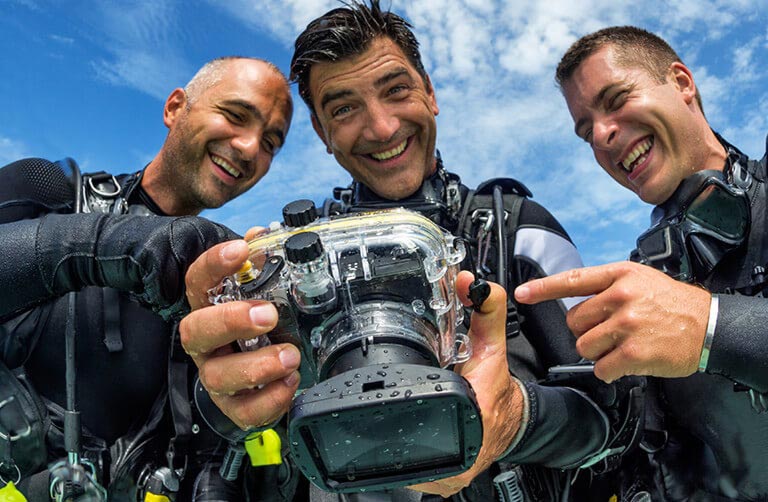Is Italy Safe? 7 Essential Travel Tips for Visitors
How safe is Italy? Our travel safety expert shares what you need to know about theft, women's safety, train travel, drink spiking and natural disasters.
 Photo © iStock/fazon1
Photo © iStock/fazon1
Italy is famously beautiful, rich in culture, and steeped in history. But is it safe?
Overall, the answer is yes, as long as you take basic precautions. Here are seven travel safety tips to avoid trouble on your Italian holiday.
- How bad is crime in Italy?
- Watch out for pickpockets
- What to wear in Italy
- Train travel safety
- Women's safety in Italy
- Drink spiking in Italy
- Natural disasters in Italy
How bad is crime in Italy?
Violent crime in Italy is rare. In the 2024 Global Peace Index, Italy ranks 33 out of 163 countries when it comes to safety and peace.
According to Statista, the crime rate in Italy has seen a decrease in recent years. However, petty crimes such as pickpocketing and bag-snatching are still common in major cities like Rome, Milan, and Florence.
Travelers should take the usual precautions to avoid becoming a victim of petty crime in Italy, just as you would in any country.
Be aware of your surroundings at all times. Avoid dark streets, and secluded places at night, and preferably go out at night with other people.
If you are unsure of the safety of the area you're visiting, ask your accommodation staff about areas of town to avoid, and the best forms of transport – and take their advice.
Begging has increased across the country, and there are scammers who use begging as a tactic to distract you while an accomplice takes your valuables.
As for the mafia? They are more concerned with turf wars than tourists (and these days, they're more into white-collar crime). So long as you aren't dealing with drugs or anything else shady on your trip, you have no reason to be afraid.
Emergency Numbers
- Emergencies: 112
- Ambulance: 118
- Fire Brigade: 115
- State Police (accidents,theft): 113
These numbers are valid throughout Italy and connect you to emergency services quickly. English-speaking operators are available when dialing 112 and may also be available when dialing the other numbers in major cities, though it's helpful to know some basic Italian phrases.
Watch out for pickpockets
Pickpockets are common in well-known, crowded tourist spots and transport terminals such as in Rome, Florence, and Naples. Always have your belongings and valuables in sight or locked away safely in your accommodation. Never leave your phone or wallet on the table while eating at a restaurant or cafe, especially outdoors, and never hang your bag over the back of the chair.
What to wear in Italy
Italy has many famous religious sites, and both men and women travelers should cover their shoulders and knees to be respectful when visiting. Carry a scarf or wrap that you can easily use to cover your shoulders or turn into a makeshift skirt if you're wearing shorts. Wear comfortable shoes, as you'll be walking a lot, and many places in Italy have uneven, cobblestone paths and roads.
Train travel safety
Traveling by train is one of the best ways to get around Italy, but look out for opportunistic thieves.
- Keep what is valuable and important close to you.
- Keep an eye on your belongings, especially at crowded train stations.
- Use carabiners or a short cable-style bike chain to attach your belongings to racks, bunks or any other fitting. This will make potential thieves think twice about a quick snatch-and-grab.
- If you are traveling overnight and staying in a cabin, make sure you lock the door from the inside.
- Try to minimize the amount of cash you carry on the train. Keep whatever cash/cards on you while you sleep.
Women's safety in Italy
For female travelers, Italy is generally considered safe, but it's important to stay vigilant. Incidents of harassment or unwanted attention can happen, particularly in tourist-heavy areas. Women traveling solo are advised to:
- Avoid walking alone at night: Stick to well-lit and populated areas, especially in large cities.
- Keep valuables secure: Use a money belt or an anti-theft bag to deter pickpockets.
- Use reputable transportation: Opt for registered taxis or rideshare services instead of hailing cabs off the street.
Drink spiking in Italy
In the bars around Piazza Navona and Campo di Fiori in Rome, there have been reports of drink spiking.
- Be cautious when visiting bars at transport hubs, such as Roma Termini and Florence's Santa Maria Novella station.
- Never accept uncovered drinks from strangers or new friends you have just met – insist you join them at the bar if you want to take up their offer of a drink. Watch the bartender pour your drink, and never leave an open drink unattended.
- If you start to feel woozy, or unusually drunk for the amount you've had, ask friends for assistance. Or, if you're alone, ask the bar staff for help.
Natural disasters in Italy
Italy's natural beauty includes some risk factors, such as volcanic activity and earthquakes. Notable volcanoes like Mount Vesuvius and Mount Etna are closely monitored, but it's still wise to be prepared. In August 2024, an eruption of Mount Etna caused major flight disruptions in Sicily.
- Volcanic eruptions: Italy experiences occasional volcanic activity. Areas around active volcanoes are well-regulated, and safety measures are in place. In the rare event of an eruption, follow local news and obey evacuation orders if issued.
- Earthquakes: Italy is seismically active, particularly in central and southern regions. Familiarize yourself with basic earthquake safety procedures, such as "Drop, Cover, and Hold On."
- Extreme heat: Italy has suffered record-breaking heatwaves during recent summmers. In August 2024, authorities issued red-alert warnings for 22 cities, as temperatures reached as high as 104°F (40°C). If traveling during a heatwave, seek shade during the hottest hours of the day and stay hydrated.
- Wildfires: Extreme summer temperatures mean an increased risk of wildfires. Monitor local news and be prepared to evacuate if a fire starts in your area.
Related articles
Simple and flexible travel insurance
You can buy at home or while traveling, and claim online from anywhere in the world. With 150+ adventure activities covered and 24/7 emergency assistance.
Get a quote

1 Comment
I think you're exaggerating a bit here.
I don't know about Rome, but in northern Italy cat-calling is the same as it is in the rest of western Europe, some rare pleb may do it but I've never seen anyone doing it.
As far the mafia goes, they do organized crime, they don't mug people. The likeliness of witnessing a mob killing and getting killed in the process is extremely low, you're thousands times more likely to get run over by a car when crossing the street (remember that you're in Italy :P). It's really a non-worry.
In the south you have more risk of mugging simply because it's a poorer area and the rule of law is weaker so e.g. in Naples even natives do theft and scams (mostly through pickpocketing), but the same can happen in the big cities in the rest of Europe if there's a nomad presence, the natives don't do the crime but the end result is the same.
You're right that rallies of any kind (political or sports) should be avoided because hooliganism isn't really under control, and the extreme left and right organizations often organize rallies and make it a point to clash with the police.
This applies especially to anti-austerity and anti-infrastructure protests, they go there equipped for a fight with shields and all.